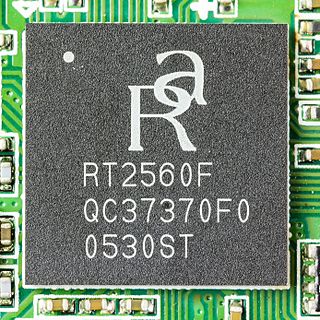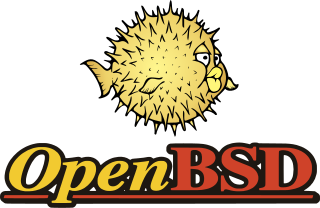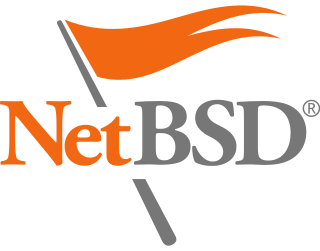Related Research Articles

Matthew Dillon is an American software engineer known for Amiga software, contributions to FreeBSD and for starting and leading the DragonFly BSD project since 2003.

pax is an archiving utility available for various operating systems and defined since 1995. Rather than sort out the incompatible options that have crept up between tar and cpio, along with their implementations across various versions of Unix, the IEEE designed a new archive utility that could support various archive formats with useful options from both archivers. The pax command is available on Unix and Unix-like operating systems and on IBM i, Microsoft Windows NT, and Windows 2000.

Keith Bostic is an American software engineer and one of the key people in the history of Berkeley Software Distribution UNIX and open-source software.

Russell "Russ" Nelson is an American computer programmer. He was a founding board member of the Open Source Initiative and briefly served as its president in 2005.

Ralink Technology, Corp. was a Wi-Fi chipset manufacturer mainly known for their IEEE 802.11 chipsets. Ralink was founded in 2001 in Cupertino, California, then moved its headquarters to Hsinchu, Taiwan.
sysctl is a software utility of some Unix-like operating systems that reads and modifies the attributes of the system kernel such as its version number, maximum limits, and security settings. It is available both as a system call for compiled programs, and an administrator command for interactive use and scripting. Linux additionally exposes sysctl as a virtual file system.
In computing, ioctl is a system call for device-specific input/output operations and other operations which cannot be expressed by regular system calls. It takes a parameter specifying a request code; the effect of a call depends completely on the request code. Request codes are often device-specific. For instance, a CD-ROM device driver which can instruct a physical device to eject a disc would provide an ioctl request code to do so. Device-independent request codes are sometimes used to give userspace access to kernel functions which are only used by core system software or still under development.
pfsync is a computer protocol used to synchronise firewall states between machines running Packet Filter (PF) for high availability. It is used along with CARP to make sure a backup firewall has the same information as the main firewall. When the main machine in the firewall cluster dies, the backup machine is able to accept current connections without loss.
A system monitor is a hardware or software component used to monitor system resources and performance in a computer system.

lm_sensors is a free open-source software-tool for Linux that provides tools and drivers for monitoring temperatures, voltage, humidity, and fans. It can also detect chassis intrusions.
Xenocara is the OpenBSD build infrastructure for the project's customised X.Org Server that utilises a dedicated _x11 user by default to drop privileges and perform privilege separation in accordance to OpenBSD's "least privilege" policy.

OpenBSD is a security-focused, free and open-source, Unix-like operating system based on the Berkeley Software Distribution (BSD). Theo de Raadt created OpenBSD in 1995 by forking NetBSD. According to the website, the OpenBSD project emphasizes "portability, standardization, correctness, proactive security and integrated cryptography."
Write Ahead Physical Block Logging (WAPBL) provides meta data journaling for file systems in conjunction with Fast File System (FFS) to accomplish rapid filesystem consistency after an unclean shutdown of the filesystem and better general use performance over regular FFS. With the journal, fsck is no longer required at system boot; instead, the system can replay the journal in order to correct any inconsistencies in the filesystem if the system has been shutdown in an unclean fashion.

OpenSSH is a suite of secure networking utilities based on the Secure Shell (SSH) protocol, which provides a secure channel over an unsecured network in a client–server architecture.

NetBSD is a free and open-source Unix-like operating system based on the Berkeley Software Distribution (BSD). It was the first open-source BSD descendant officially released after 386BSD was forked. It continues to be actively developed and is available for many platforms, including servers, desktops, handheld devices, and embedded systems.
sndio is the software layer of the OpenBSD operating system that manages sound cards and MIDI ports. It provides an optional sound server and a documented application programming interface to access either the server or the audio and MIDI hardware in a uniform way. sndio is designed to work for desktop applications, but pays special attention to synchronization mechanisms and reliability required by music applications.
The sysctl hw.sensors framework is a kernel-level hardware sensors framework originating from OpenBSD, which uses the sysctl kernel interface as the transport layer between the kernel and the userland. As of 2019, the framework is used by over a hundred device drivers in OpenBSD to export various environmental sensors, with temperature sensors being the most common type. Consumption and monitoring of sensors is done in the userland with the help of sysctl, systat, sensorsd, ntpd, snmpd, ports/sysutils/symon and GKrellM.
The envsys framework is a kernel-level hardware monitoring sensors framework in NetBSD. As of 4 March 2019, the framework is used by close to 85 device drivers to export various environmental monitoring sensors, as evidenced by references of the sysmon_envsys_register symbol within the sys path of NetBSD; with temperature sensors, ENVSYS_STEMP, being the most likely type to be exported by any given driver. Sensors are registered with the kernel through sysmon_envsys(9) API. Consumption and monitoring of sensors from the userland is performed with the help of envstat utility through proplib(3) through ioctl(2) against the /dev/sysmon pseudo-device file, the powerd power management daemon that responds to kernel events by running scripts from /etc/powerd/scripts/, as well as third-party tools like symon and GKrellM from pkgsrc.
The bio(4) pseudo-device driver and the bioctl(8) utility implement a generic RAID volume management interface in OpenBSD and NetBSD. The idea behind this software is similar to ifconfig, where a single utility from the operating system can be used to control any RAID controller using a generic interface, instead of having to rely on many proprietary and custom RAID management utilities specific for each given hardware RAID manufacturer. Features include monitoring of the health status of the arrays, controlling identification through blinking the LEDs and managing of sound alarms, and specifying hot spare disks. Additionally, the softraid configuration in OpenBSD is delegated to bioctl as well; whereas the initial creation of volumes and configuration of hardware RAID is left to card BIOS as non-essential after the operating system has already been booted. Interfacing between the kernel and userland is performed through the ioctl system call through the /dev/bio pseudo-device.
References
- ↑ "Undeadly" . Retrieved 9 October 2018.
- ↑ "Changes". Archived from the original on 9 October 2018.
- ↑ "OpenBSD 2.0" . Retrieved 9 October 2018.
- ↑ "Release Notes" . Retrieved 9 October 2018.
- ↑ "Release Notes" . Retrieved 9 October 2018.
- ↑ "Release Notes" . Retrieved 9 October 2018.
- ↑ "Release Notes" . Retrieved 9 October 2018.
- ↑ "Release Notes" . Retrieved 9 October 2018.
- ↑ "Release Notes" . Retrieved 9 October 2018.
- ↑ "Release Notes" . Retrieved 9 October 2018.
- ↑ "Release Notes" . Retrieved 9 October 2018.
- ↑ "Release Notes" . Retrieved 9 October 2018.
- ↑ "Release Notes" . Retrieved 9 October 2018.
- ↑ "Release Notes" . Retrieved 9 October 2018.
- ↑ "Errata" . Retrieved 9 October 2018.
- ↑ "Release Notes" . Retrieved 9 October 2018.
- ↑ "Release Notes" . Retrieved 9 October 2018.
- ↑ "Release Notes" . Retrieved 9 October 2018.
- ↑ "p0f" . Retrieved 9 October 2018.
- 1 2 3 "OpenBSD Innovations". The OpenBSD project. Retrieved 12 September 2016.
- 1 2 3 Constantine A. Murenin; Raouf Boutaba (17 March 2009). "6. Evolution of the framework". OpenBSD Hardware Sensors Framework (PDF). AsiaBSDCon 2009 Proceedings, 12–15 March 2009. Tokyo University of Science, Tokyo, Japan (published 14 March 2009). Archived (PDF) from the original on 21 February 2009. Retrieved 4 March 2019.
- ↑ "Release Notes" . Retrieved 9 October 2018.
- ↑ Federico Biancuzzi (15 April 2004). "OpenBSD PF Developer Interview". ONLamp. O'Reilly Media . Retrieved 20 March 2019.
- ↑ Federico Biancuzzi (6 May 2004). "OpenBSD PF Developer Interview, Part 2". ONLamp. O'Reilly Media . Retrieved 20 March 2019.
- ↑ "bc(1)" . Retrieved 9 October 2018.
- ↑ "dc(1)" . Retrieved 9 October 2018.
- ↑ "nm(1)" . Retrieved 9 October 2018.
- ↑ "size(1)" . Retrieved 9 October 2018.
- ↑ "Release Notes" . Retrieved 9 October 2018.
- ↑ "Release Notes" . Retrieved 9 October 2018.
- 1 2 Federico Biancuzzi (28 October 2004). "OpenBSD 3.6 Live". ONLamp. O'Reilly Media . Retrieved 20 March 2019.
- ↑ "Release Notes" . Retrieved 9 October 2018.
- ↑ Federico Biancuzzi (19 May 2005). "OpenBSD 3.7: The Wizard of OS". ONLamp. O'Reilly Media . Retrieved 20 March 2019.
- ↑ "Release Notes" . Retrieved 9 October 2018.
- ↑ de Raadt, Theo. "CVS: cvs.openbsd.org: src". OpenBSD-CVS mailing list.
Removed files: libexec/telnetd
- ↑ Federico Biancuzzi (20 October 2005). "OpenBSD 3.8: Hackers of the Lost RAID". ONLamp. O'Reilly Media . Retrieved 20 March 2019.
- ↑ "Release Notes" . Retrieved 9 October 2018.
- 1 2 Federico Biancuzzi (27 April 2006). "OpenBSD 3.9: Blob-Busters Interviewed". ONLamp. O'Reilly Media . Retrieved 19 March 2019.
- ↑ "Release Notes" . Retrieved 9 October 2018.
- ↑ Federico Biancuzzi (26 October 2006). "OpenBSD 4.0: Pufferix's Adventures". ONLamp. O'Reilly Media . Retrieved 19 March 2019.
- ↑ "Errata" . Retrieved 9 October 2018.
- ↑ "Release Notes" . Retrieved 9 October 2018.
- ↑ Federico Biancuzzi (3 May 2007). "OpenBSD 4.1: Puffy Strikes Again". ONLamp. O'Reilly Media . Retrieved 19 March 2019.
- ↑ Constantine A. Murenin (30 December 2006). Marco Peereboom (ed.). "New two-level sensor API". OpenBSD Journal . Retrieved 4 March 2019.
- ↑ Constantine A. Murenin (17 April 2007). "4.3. What we have proposed and implemented". Generalised Interfacing with Microprocessor System Hardware Monitors. Proceedings of 2007 IEEE International Conference on Networking, Sensing and Control, 15–17 April 2007. London, United Kingdom: IEEE. pp. 901–906. doi:10.1109/ICNSC.2007.372901. ISBN 1-4244-1076-2. IEEE ICNSC 2007, pp. 901—906.
- ↑ "Release Notes" . Retrieved 9 October 2018.
- ↑ Federico Biancuzzi (1 November 2007). "Puffy's Marathon: What's New in OpenBSD 4.2". ONLamp. O'Reilly Media . Retrieved 3 March 2019. Lay summary.
- ↑ "Release Notes" . Retrieved 9 October 2018.
- ↑ Federico Biancuzzi (29 April 2008). "Puffy and the Cryptonauts: What's New in OpenBSD 4.3". ONLamp. O'Reilly Media . Retrieved 20 March 2019.
- ↑ "Release Notes" . Retrieved 9 October 2018.
- ↑ Kurt Miller (2008). "OpenBSD's Position Independent Executable (PIE) Implementation". Archived from the original on 12 June 2011. Retrieved 22 July 2011.
- 1 2 Federico Biancuzzi (3 November 2008). "Source Wars - Return of the Puffy: What's New in OpenBSD 4.4". O'Reilly Media . Retrieved 3 March 2019.
- ↑ "Release Notes" . Retrieved 9 October 2018.
- ↑ Federico Biancuzzi (15 June 2009). "PuffyTron recommends OpenBSD 4.5". O'Reilly Media . Retrieved 19 March 2019.
- 1 2 Constantine A. Murenin (21 May 2010). "6.2. Evolution of drivers; Chart VII. Number of drivers using the sensors framework from OpenBSD 3.4 to 4.6.". OpenBSD Hardware Sensors — Environmental Monitoring and Fan Control (MMath thesis). University of Waterloo: UWSpace. hdl:10012/5234. Document ID: ab71498b6b1a60ff817b29d56997a418.
- ↑ "Release Notes" . Retrieved 9 October 2018.
- ↑ "Release Notes" . Retrieved 9 October 2018.
- ↑ "Release Notes" . Retrieved 9 October 2018.
- ↑ "MARC" . Retrieved 9 October 2018.
- ↑ "Release Notes" . Retrieved 9 October 2018.
- ↑ "Release Notes" . Retrieved 9 October 2018.
- ↑ "Release Notes" . Retrieved 9 October 2018.
- ↑ "Release Notes" . Retrieved 9 October 2018.
- ↑ "Release Notes" . Retrieved 9 October 2018.
- ↑ "Release Notes" . Retrieved 9 October 2018.
- ↑ "Release Notes" . Retrieved 9 October 2018.
- ↑ "Release Notes" . Retrieved 9 October 2018.
- ↑ "Release Notes" . Retrieved 9 October 2018.
- ↑ "Release Notes" . Retrieved 9 October 2018.
- ↑ "MARC" . Retrieved 9 October 2018.
- ↑ "Release Notes" . Retrieved 9 October 2018.
- ↑ OpenBSD 6.0. OpenBSD. ISBN 978-0-9881561-8-0 . Retrieved 24 July 2016.
- ↑ "OpenBSD vax". OpenBSD. Retrieved 2 September 2016.
- ↑ "OpenBSD sparc". OpenBSD. Retrieved 2 September 2016.
- ↑ "OpenBSD 6.1". OpenBSD. Retrieved 11 April 2017.
- ↑ "OpenBSD 6.2". OpenBSD.
- ↑ "unveil(2)". OpenBSD. Retrieved 19 October 2018.
- ↑ "OpenBSD 6.6". OpenBSD. Retrieved 17 January 2020.
- ↑ "OpenBSD 6.7". OpenBSD. Retrieved 21 May 2020.
- "OpenBSD FAQ". OpenBSD. Retrieved 5 May 2021.
- ↑ "OpenBSD 6.8". OpenBSD. Retrieved 18 October 2020.
- ↑ "OpenBSD 6.9". OpenBSD. Retrieved 2 May 2021.